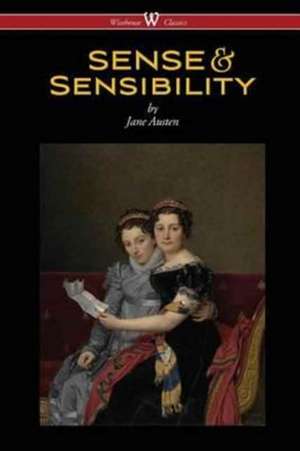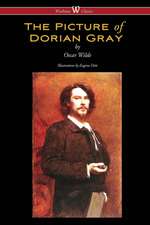Sense and Sensibility (Wisehouse Classics - With Illustrations by H.M. Brock)
Autor Jane Austenen Limba Engleză Paperback – 17 aug 2016
Austen biographer Claire Tomalin argues that Sense and Sensibility has a "wobble in its approach," which developed because Austen, in the course of writing the novel, gradually became less certain about whether sense or sensibility should triumph. Austen characterizes Marianne as a sweet lady with attractive qualities: intelligence, musical talent, frankness, and the capacity to love deeply. She also acknowledges that Willoughby, with all his faults, continues to love and, in some measure, appreciate Marianne. For these reasons, some readers find Marianne's ultimate marriage to Colonel Brandon an unsatisfactory ending.
Other interpretations, however, have argued that Austen's intention was not to debate the superior value of either sense or sensibility in good judgment, but rather to demonstrate that both are equally important but must be applied with good balance to one another
| Toate formatele și edițiile | Preț | Express |
|---|---|---|
| Paperback (1) | 83.60 lei 6-8 săpt. | |
| Wisehouse Classics – 17 aug 2016 | 83.60 lei 6-8 săpt. | |
| Hardback (1) | 179.74 lei 38-44 zile | |
| Wisehouse Classics – 21 oct 2017 | 179.74 lei 38-44 zile |
Preț: 83.60 lei
Nou
Puncte Express: 125
Preț estimativ în valută:
16.00€ • 17.39$ • 13.45£
16.00€ • 17.39$ • 13.45£
Carte tipărită la comandă
Livrare economică 21 aprilie-05 mai
Preluare comenzi: 021 569.72.76
Specificații
ISBN-13: 9789176372531
ISBN-10: 9176372537
Pagini: 228
Dimensiuni: 152 x 229 x 14 mm
Greutate: 0.34 kg
Editura: Wisehouse Classics
ISBN-10: 9176372537
Pagini: 228
Dimensiuni: 152 x 229 x 14 mm
Greutate: 0.34 kg
Editura: Wisehouse Classics
Notă biografică
Jane Austen (1775 - 1817) was an English novelist known primarily for her six major novels, which interpret, critique and comment upon the British landed gentry at the end of the 18th century. Austen's plots often explore the dependence of women on marriage in the pursuit of favorable social standing and economic security. Her works critique the novels of sensibility of the second half of the 18th century and are part of the transition to 19th-century literary realism. With the publications of Sense and Sensibility (1811), Pride and Prejudice (1813), Mansfield Park (1814) and Emma (1815), she achieved success as a published writer. She wrote two additional novels, Northanger Abbey and Persuasion, both published posthumously in 1818 and began a third, eventually titled Sanditon, but died before its completion. Her novels have rarely been out of print, although they were published anonymously and brought her little fame during her lifetime. A significant transition in her posthumous reputation occurred in 1869, fifty-two years after her death, when her nephew's publication of A Memoir of Jane Austen introduced her to a wider audience. Austen has inspired a large number of critical essays and literary anthologies. Her novels have inspired many films, from 1940's Pride and Prejudice to more recent productions: Sense and Sensibility (1995) and Love & Friendship (2016). Jane Austen's use of biting irony, along with her realism and social commentary have earned her great and historical importance to critics and scholars.



















